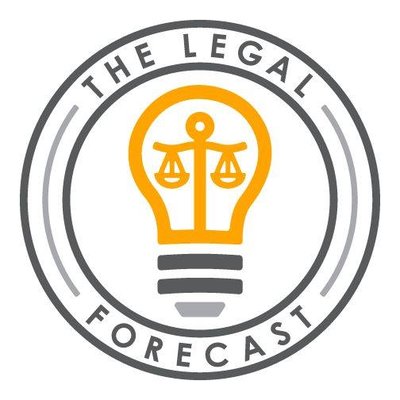|
Week 1, Semester 2 Last semester, I took part in The Legal Forecast’s (TLF) inaugural Race to the Future. TLF’s Victorian President, Sophie Tversky, describes TLF as a not-for-profit organisation that ‘aims to advance legal practice through technology and innovation...run by early–career professionals who are passionate about disruptive thinking and access to justice.’ Race to the Future involved the completion of a series of challenges around the Melbourne CBD, based upon technological disruption of the legal industry. I asked TLF if I could review their event to encourage students to increase their awareness of the evolving relationship between the law and technology. Our responsibility as future legal professionals is to respond to technological advances and reimagine the legal landscape for the better. Sophie Tversky stated that digital skills proficiency will be crucial not only for those who intend to become lawyers, but also ‘for shaping new roles that are emerging, such as legal designers, legal technologists and legal engineers.’ On a more immediate note, an awareness of technological change and disruption within the legal industry will assist your clerkship applications. Hopefully, you’ll have an interesting talking point if you find yourself in an interview and a besuited so-and-so asks you about blockchain.
With these considerations in mind, I took part to learn something from the other participants and to find out what technological disruption means for the law. For the record, I now know what ‘machine learning’, ‘chatbots’, ‘email threading’ and ‘digital de-duplication’ are. I still do not really know what ‘blockchain’ is. Alas. Teams engaged in back-to-back challenges requiring inventive, technological solutions to a variety of industry concerns, including: RRR (Regional, Remote and Rural) access to justice, e-discovery, mental health and digital compliance. Students were mentored by several law firms, who tempered idealistic innovation with real world considerations: limited financial resources, time strapped lawyers and a professional identity that struggles to balance business success with humanism. A key benefit was the opportunity to learn from team members, industry professionals and the other participants in a genuinely collaborative atmosphere. The challenges took place in the context of a Creative Commons. In broad terms, this allowed the sharing of unmodified work generated by teams after the event for non-commercial purposes, with appropriate credit given to the author(s), and with a link to the Commons license. Teams had the option to withdraw from the Commons at any time subject to the creation of a separate license agreement between all team members, their mentors and TLF. On a critical note, I felt that this option would probably not be exercised by participants given the fast-paced nature of the event and the risk of disrupting the collaborative atmosphere. If you have concerns about the relationship between intellectual property and Creative Commons, I encourage you to carefully review the terms and conditions of any hackathon in which you participate. Amongst the day’s winners, Melbourne Law School’s Cristabel Gekas received the GlobalX Individual Award for displaying the greatest level of innovation, leadership and systems thinking throughout the day. She received an internship with GlobalX (one of the event’s sponsors). Cristabel appreciated the opportunity to explore the intersection between law, technology and innovation, and looks forward to obtaining a direct insight into how developers and legal professionals work together to create tech-based solutions at GlobalX. Overall, Race to the Future was a rewarding experience. I encourage any enthusiastic students to get involved with similar hackathons. TLF have advised me that more opportunities to get involved and attend innovation and tech events will become available during the year. However, TLF is by no means the only way to show an interest in technology and to bring your digital literacy up to date. For starters, read the Future of Law and Innovation in the Profession, published by the Law Society of New South Wales. You can also listen to The Law Report, and keep up with Lawyers Weekly. Finally, there are many opportunities available to you at Melbourne Law School for more rigorous engagement with technology and the law.
Ultimately, your area of interest may be litigation, research, compliance, or access to justice. It might be something else entirely. Wherever your passion lies, get out there and embrace the opportunity to bring the law and technology together. Editor's note: Alice Kennedy does not work for or volunteer with TLF. Comments are closed.
|
Archives
October 2022
|



